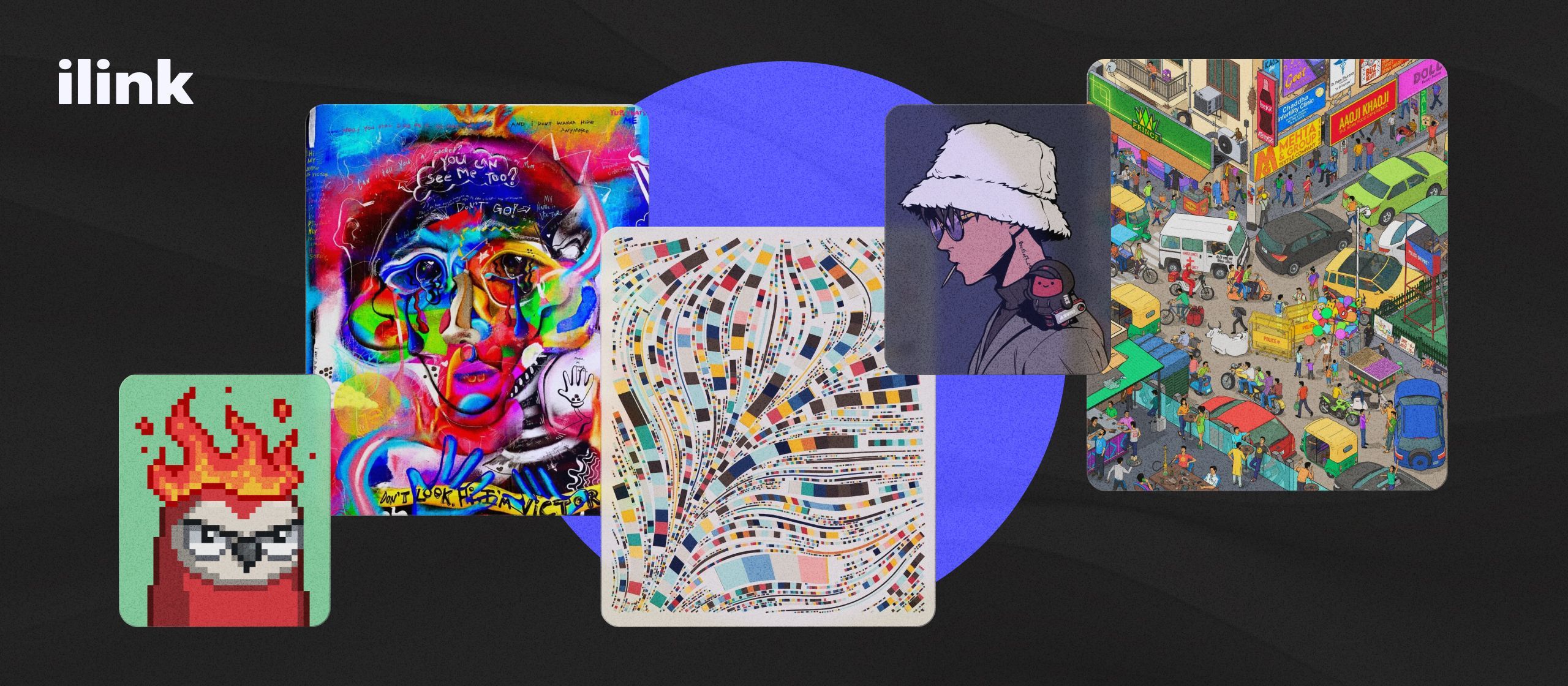The Business Case for Developing an NFT Marketplace: How It Can Drive Revenue and Expand Your Brand
Introduction
The rise of non-fungible tokens (NFTs) has taken the digital world by storm, with NFTs transforming the way we think about ownership, art, and commerce. From digital art and gaming to fashion and entertainment, NFTs have unlocked new opportunities for businesses to generate revenue and connect with consumers in innovative ways. At the heart of this revolution are NFT marketplaces, platforms that facilitate the buying, selling, and trading of digital assets. In this article, we’ll explore why developing an NFT marketplace could be a game-changer for your business, discussing how it can drive revenue, expand your brand presence, and create new business opportunities in the rapidly growing world of NFTs.
The Growing NFT Market: A Revenue Opportunity for Businesses
NFTs have witnessed explosive growth over the past few years, attracting attention from artists, creators, and major brands alike. The NFT market reached $17.6 billion in sales in 2021, signaling its importance across a variety of industries, including art, entertainment, fashion, and gaming. For businesses, the surge in interest represents a lucrative opportunity to tap into this growing market. By developing an NFT marketplace, businesses can position themselves as key players in the digital asset ecosystem.
Revenue Potential
An NFT marketplace offers businesses several revenue-generating opportunities:
- Transaction fees. Marketplaces typically charge a small commission on every transaction, providing a steady stream of income as buyers and sellers engage in the buying and selling of NFTs.
- Secondary sales commissions. NFT marketplaces can continue to generate revenue from secondary sales. In many cases, creators receive royalties, but marketplaces can also take a percentage of each resale.
- Auction models. Auctions can bring high-value sales, generating excitement and demand, with the marketplace earning a percentage of each auction.
- The ability to monetize through multiple revenue streams makes developing an NFT marketplace a compelling business decision.
Business Models for NFT Marketplaces: Monetization Strategies
When it comes to monetizing an NFT marketplace, businesses have a range of options to choose from. The key is to develop a model that maximizes user engagement while also generating sustainable revenue. Some common revenue models include:
Transaction Fees. One of the most straightforward revenue models is charging a transaction fee for each sale that occurs on the marketplace. Typically, the marketplace takes a small commission (usually between 1% and 5%) from each transaction, providing a steady revenue stream with every trade.
Secondary Sales Commissions. NFT marketplaces often earn revenue from secondary sales of NFTs. Whenever an NFT is resold, the marketplace can earn a commission. Additionally, creators may receive royalties on these secondary sales, and platforms can also benefit from a percentage of the resale price.
Auction Models. Many NFT marketplaces incorporate auction systems, allowing buyers to bid on high-value NFTs. These auctions can create a sense of urgency and excitement, attracting higher bids. The marketplace typically earns a percentage of the auctioned price.
Premium Features and Memberships. Businesses can also monetize their platforms by offering premium features or membership models. This could include things like exclusive access to certain NFTs, VIP memberships, or advertising opportunities within the marketplace. These features provide additional value to users while generating consistent revenue.
How an NFT Marketplace Can Enhance Brand Visibility and Customer Loyalty
Developing an NFT marketplace offers businesses more than just financial benefits; it can also elevate brand visibility and strengthen customer loyalty.
Branding Opportunities in the Digital Space. Creating your own NFT marketplace establishes your business as an innovator in the digital space. As the NFT market grows, being an early adopter and leader in this field can help set your brand apart from competitors. By developing a marketplace, your brand can gain exposure within the vibrant NFT ecosystem and attract a dedicated user base of artists, collectors, and enthusiasts.
Exclusive Digital Assets. Launching exclusive branded NFTs can strengthen customer relationships by offering digital products that are unique to your brand. Whether it's limited edition digital art, collectibles, or exclusive access to virtual events, NFTs can be a powerful way to enhance customer engagement. Consumers appreciate exclusivity, and offering unique NFTs tied to your brand helps foster deeper emotional connections with your audience.
Creating Customer Loyalty. NFTs can also serve as a tool to reward and engage loyal customers. By offering customers the opportunity to earn or purchase exclusive NFTs, businesses can foster a sense of community. These digital assets can serve as virtual tokens of appreciation, encouraging repeat engagement and loyalty. For example, businesses can create a series of collectibles that reward long-term customers, creating a sense of progression and achievement within the NFT ecosystem.
Collaborations with Creators and Artists. NFT marketplaces offer businesses the opportunity to collaborate with artists, influencers, and creators to release branded digital content. These collaborations can extend your brand reach to new audiences and help position your business as a thought leader within the NFT space.
Competitive Advantage: Why Your Business Should Invest in an NFT Marketplace
Investing in the development of an NFT marketplace can offer businesses a competitive edge in a rapidly expanding market. Here's why:
First-Mover Advantage. The NFT space is still relatively new, and businesses that build their own marketplaces early on can benefit from being one of the first to establish a significant presence. This first-mover advantage allows companies to capture market share, build a strong community, and establish their reputation as industry leaders in the digital asset space.
Differentiating Your Brand. NFT marketplaces provide a unique way for businesses to differentiate themselves. By offering branded digital goods, exclusive experiences, or partnerships with creators, businesses can stand out from their competitors. A well-designed NFT marketplace can serve as an extension of your brand, attracting customers who value innovation and uniqueness.
Capturing a New Audience. NFTs appeal to a wide range of digital-native consumers, including tech-savvy individuals, gamers, artists, and collectors. By launching your own marketplace, your business can tap into this growing audience and expand its reach into the digital and virtual asset markets. The metaverse and virtual worlds are becoming increasingly important, and being part of that ecosystem provides new opportunities for growth.
Ready to build your own NFT marketplace and capitalize on the growing digital asset market? Contact us today to discuss how we can help you create a secure, scalable, and user-friendly NFT marketplace tailored to your business needs. Let’s take your brand to the next level in the world of NFTs!
Challenges and Considerations When Developing an NFT Marketplace
While developing an NFT marketplace offers significant opportunities, businesses must also address several challenges:
Technical and Security Considerations. Building an NFT marketplace requires expertise in blockchain integration, smart contract development, and security protocols. Ensuring the platform is scalable and secure is paramount, as vulnerabilities can lead to costly breaches or loss of user trust.
User Experience and Design. An intuitive and engaging user experience (UX) is crucial for attracting and retaining customers. The platform should be easy to navigate, with streamlined processes for buying, selling, and minting NFTs. Additionally, implementing wallet integrations and support for different payment options will improve accessibility for users.
Legal and Regulatory Issues. NFT marketplaces face a number of legal and regulatory hurdles, including intellectual property rights, digital ownership, and compliance with cryptocurrency regulations. It’s important to work with legal experts to ensure that your marketplace operates within the bounds of the law.
Platform Adoption and Marketing. Attracting users to a new NFT marketplace can be challenging, especially in a competitive market. Businesses must invest in effective marketing strategies, including influencer partnerships, community engagement, and advertising to build awareness and drive adoption.
The Future of NFT Marketplaces: What’s Next for Your Business?
As the NFT market evolves, so too will NFT marketplaces. Some trends to watch include:
- Cross-platform interoperability. The ability for NFTs to move across different platforms will become increasingly important.
- Integration with Virtual Realities. NFT marketplaces will likely integrate with virtual reality (VR) and metaverse platforms, providing a more immersive experience.
- Sustainability. As concerns grow about the environmental impact of blockchain technology, businesses will need to explore more energy-efficient options.
Conclusion: Why Developing an NFT Marketplace Is a Smart Business Move
Developing an NFT marketplace offers businesses a unique opportunity to generate revenue, increase brand visibility, and engage customers in new and exciting ways. With multiple monetization strategies, the potential for growth, and the ability to create exclusive branded experiences, NFT marketplaces are quickly becoming a must-have for businesses looking to stay competitive in the digital age. Now is the time to explore the possibilities of the NFT marketplace ecosystem and position your business at the forefront of this digital revolution.
Comments (0)
Latest Posts
Learn how AURI, the automated AI call center, transforms business communication. Natural dialogue, CRM integration, omnichannel support, rapid deployment, and enterprise-grade security in one intelligent solution.
Learn how to build an online casino that scales: games, payment options, compliance basics, risk controls, and operational automation for growth.
Do You Have Any Questions?
Leave your details - we will contact you to answer all your questions




